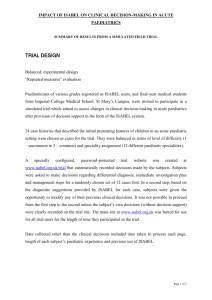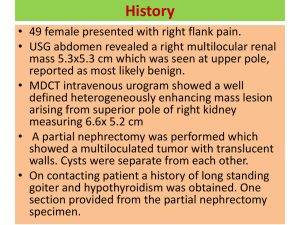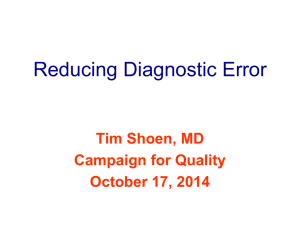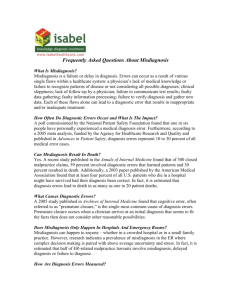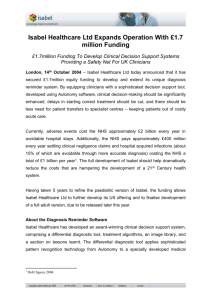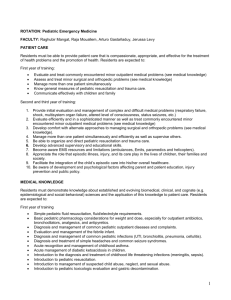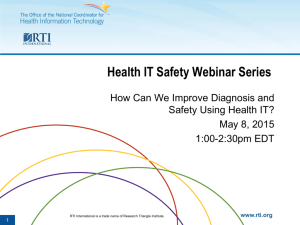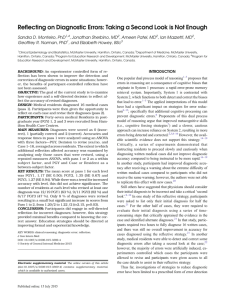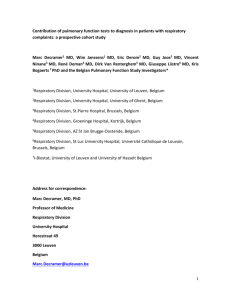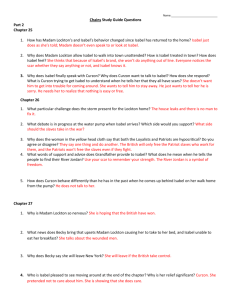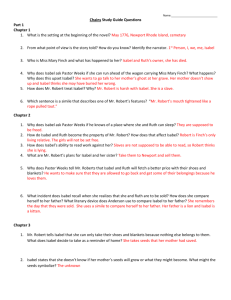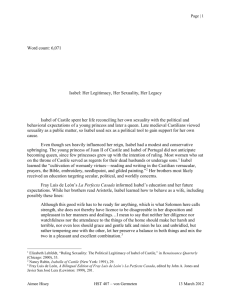Title: Impact of a Web-based Diagnosis Reminder System
advertisement
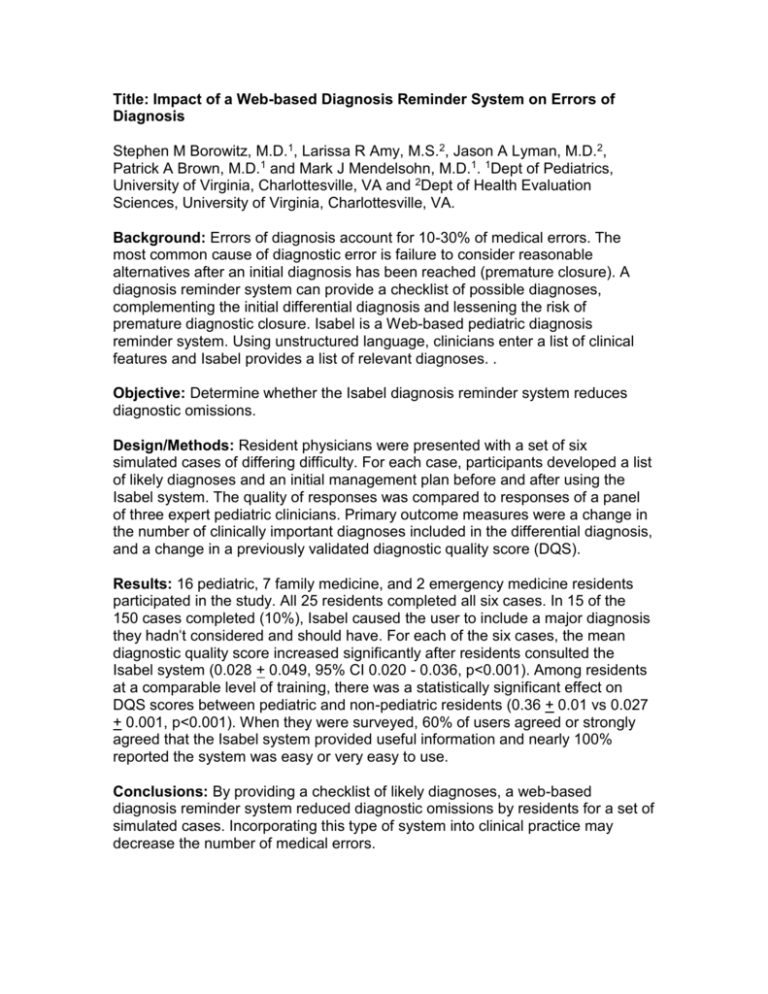
Title: Impact of a Web-based Diagnosis Reminder System on Errors of Diagnosis Stephen M Borowitz, M.D.1, Larissa R Amy, M.S.2, Jason A Lyman, M.D.2, Patrick A Brown, M.D.1 and Mark J Mendelsohn, M.D.1. 1Dept of Pediatrics, University of Virginia, Charlottesville, VA and 2Dept of Health Evaluation Sciences, University of Virginia, Charlottesville, VA. Background: Errors of diagnosis account for 10-30% of medical errors. The most common cause of diagnostic error is failure to consider reasonable alternatives after an initial diagnosis has been reached (premature closure). A diagnosis reminder system can provide a checklist of possible diagnoses, complementing the initial differential diagnosis and lessening the risk of premature diagnostic closure. Isabel is a Web-based pediatric diagnosis reminder system. Using unstructured language, clinicians enter a list of clinical features and Isabel provides a list of relevant diagnoses. . Objective: Determine whether the Isabel diagnosis reminder system reduces diagnostic omissions. Design/Methods: Resident physicians were presented with a set of six simulated cases of differing difficulty. For each case, participants developed a list of likely diagnoses and an initial management plan before and after using the Isabel system. The quality of responses was compared to responses of a panel of three expert pediatric clinicians. Primary outcome measures were a change in the number of clinically important diagnoses included in the differential diagnosis, and a change in a previously validated diagnostic quality score (DQS). Results: 16 pediatric, 7 family medicine, and 2 emergency medicine residents participated in the study. All 25 residents completed all six cases. In 15 of the 150 cases completed (10%), Isabel caused the user to include a major diagnosis they hadn t considered and should have. For each of the six cases, the mean diagnostic quality score increased significantly after residents consulted the Isabel system (0.028 + 0.049, 95% CI 0.020 - 0.036, p<0.001). Among residents at a comparable level of training, there was a statistically significant effect on DQS scores between pediatric and non-pediatric residents (0.36 + 0.01 vs 0.027 + 0.001, p<0.001). When they were surveyed, 60% of users agreed or strongly agreed that the Isabel system provided useful information and nearly 100% reported the system was easy or very easy to use. Conclusions: By providing a checklist of likely diagnoses, a web-based diagnosis reminder system reduced diagnostic omissions by residents for a set of simulated cases. Incorporating this type of system into clinical practice may decrease the number of medical errors.

